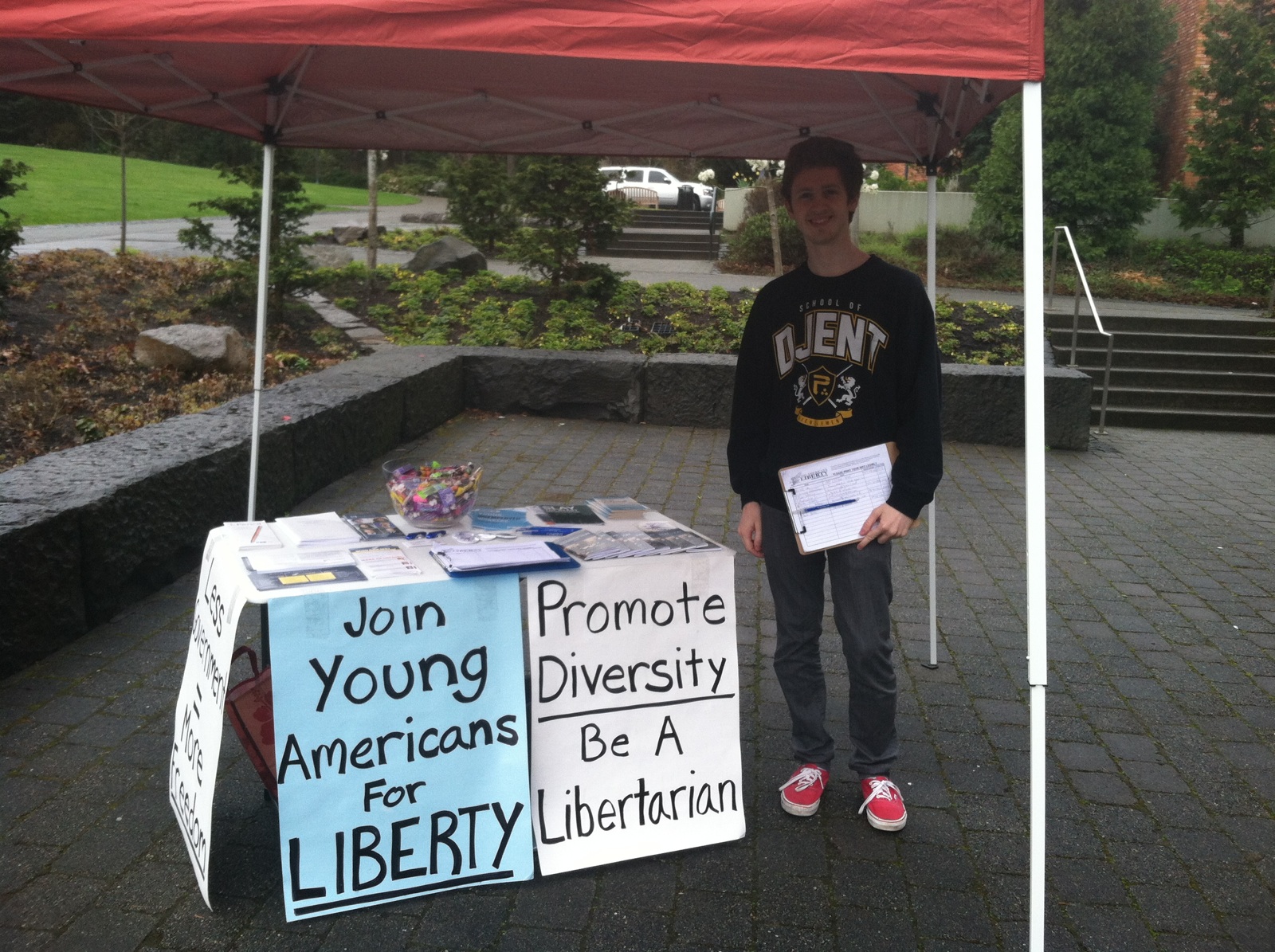
By Caleb Diehl /// Managing Editor
Though the three-day international affairs symposium begins this evening, plans for protests, and peace negotiations, have already hit campus. Before former director of the National Security Agency and Central Intelligence Agency Michael Hayden speaks in Templeton at 7:30 p.m., Young Americans for Liberty plans to meet him with signs decrying NSA surveillance, and advocating for civil rights.
“A lot of people have been kind of attacking us, thinking we’re going to be catcalling,” said Chris Roark (’17), the leader of Young Americans for Liberty. “We’ve never said we’re going to do that. That’s petty and ridiculous.”
Roark said the protesters will not block entrances to council chambers. While John Weston, a contributor to the Daily Beast, debates Hayden, the students will listen in silence until the question and answer period.
Nathan Ren (’14) and Nathan Romine (’14), members of the symposium planning committee, met with Roark last week. Roark said both sides agreed the protest would stay peaceful. “It sounds like we’re all on the same page,” Ren said.
“All Nathan and I have discussed with Chris is to ensure we keep it civil and mature,” Ren added, “to represent Lewis & Clark as an institution which encourages intellectual discourse and disagreement but allows people the freedom of expression and organization.”
Roark joined Young Americans for Liberty earlier this year. He describes the organization as “libertarian-leaning,” with the goal to “get people moving.” With its libertarian platform, the student group advocates for constitutional rights and opposes government surveillance and intrusions into personal liberty. The protest, set to begin at 5:30 p.m. outside the Trailroom, is Roark’s first. The Regional Chair of Young Americans for Liberty is coming to campus today to help with preparations.
Roark said he can’t think of anyone more appropriate to protest than Michael Hayden, who served as the director of the NSA from 1999 to 2005. Hayden has come out in favor of some of the programs uncovered by former NSA contractor Edward Snowden, including the collection of telephone “metadata”—phone numbers, location data and call times—from civilians.
Though the symposium planners have formatted Hayden’s appearance as a debate with Weston, Roark said few people know much about Hayden’s opponent. Weston is a former U.S. State Department official and political advisor who spent seven years with Marines in Iraq and Afghanistan.
As far as name recognition goes, Roark said Weston doesn’t stack up against Hayden, and that “the only fair opposite would be Edward Snowden.”
Though Roark has said his group will not cause disruption while Hayden speaks, students have shown opposition. On Thursday, Roark tacked a poster to a wall in J.R. Howard. He returned the next day to find it torn down, so he put up a replacement. Two classes later, that copy had disappeared too.
“I’m a little disappointed with the way people have been treating us,” Roark said. “At a school with such a long tradition of protesting for civil rights and fighting for civil liberties, I feel like the response we’ve gotten has just been ridiculous and childish.”
Few dissenters will talk to Roark in person. Instead he finds Facebook posts, most of which come off as respectful and polite, except for a handful he described as condescending. He has received courteous responses from symposium organizers.
“Especially the people in the symposium have been very respectful with the conversation,” Roark said. “I hope I give off that vibe too.”
In fact, symposium planners might have known their guests would come under fire.
“We decided to bring extremely controversial speakers for a reason,” said Caroline Gray (‘14), a member of the planning committee, “to spark debate, ideas and conversation that will hopefully carry on throughout the symposium and after.”
Caleb Diehl is the managing editor of The Pioneer Log. His work has also appeared in The Park Record and on the Lewis & Clark School of Education and Counseling webpage. He is a contributing writer to the LC Journal for Social Justice.
Subscribe to the Mossy Log Newsletter
Stay up to date with the goings-on at Lewis & Clark! Get the top stories or your favorite section delivered to your inbox whenever we release a new issue.

Leave a Reply